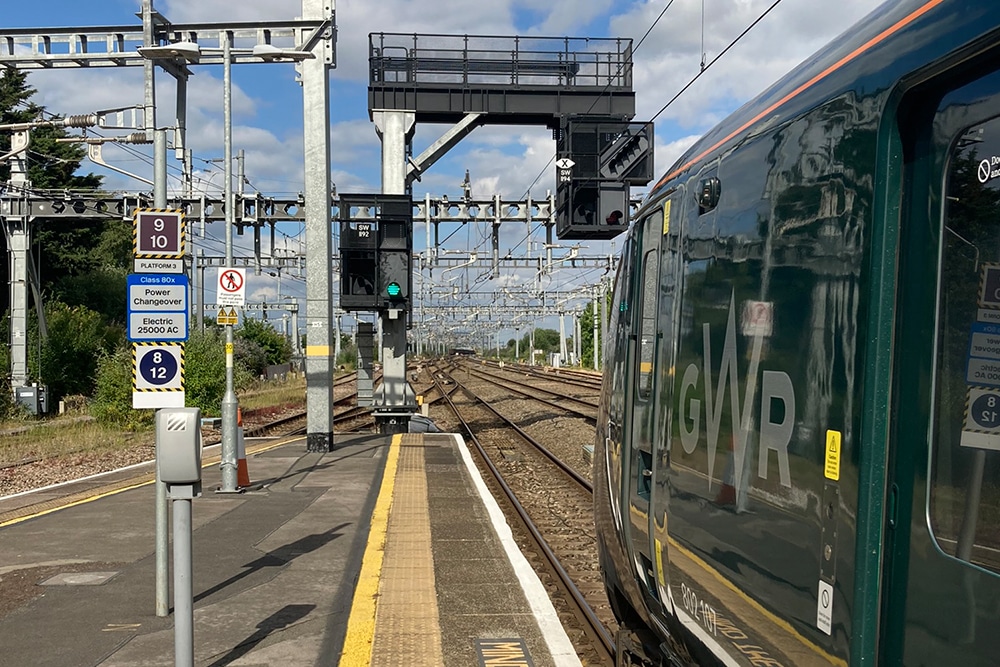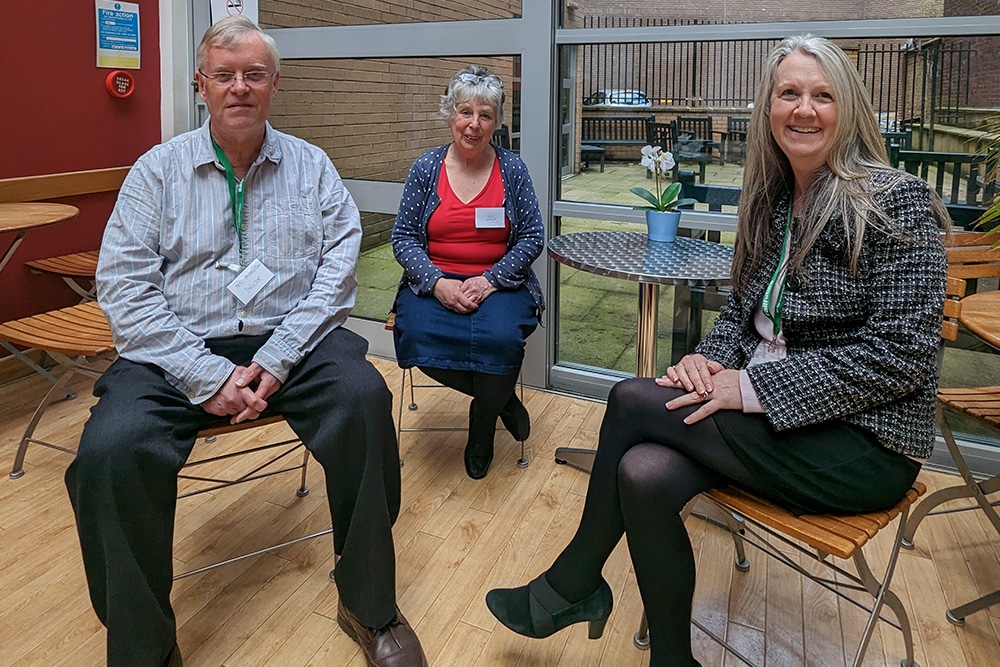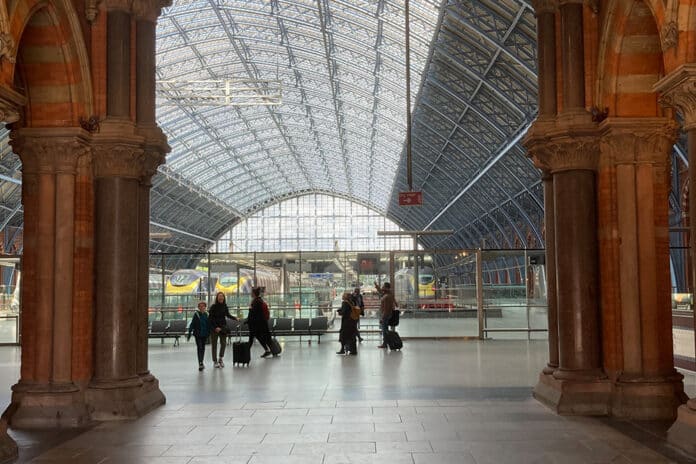Railfuture has recently held its annual conference discussing the importance of attracting more passenger and freight customers to the railways. Rail Business Daily’s Sherene Kraayveld explains more
The future of rail in the UK is set to be one of significant change and transformation, driven by a range of technological, social and economic factors. Over the coming decades, we can expect to see the continued development of high-speed rail links, increased use of automation and digital technology, and a growing focus on sustainability and environmental impact.
One of the most significant developments in recent years has been the ongoing expansion of the UK’s high-speed rail network. With the completion of the first phase of the HS2 project, we can expect to see improved connectivity between major cities in the Midlands and the North and the South of England, reducing travel times and boosting economic growth. The second phase of the project is set to extend the network even further, creating new connections to Scotland and the North-East of England.
With all these changes and the constant challenges which present themselves, Railfuture tackled the topics head on under the heading ‘Turning Point for the Railway’, with the aim of discussing the importance of attracting more passenger and freight customers in the wake of the COVID-19 pandemic. The event had been scheduled to run in 2021 but with the obvious impactor being COVID-19, was instead pushed back to 2022, with rail strike unfortunately having another massive hit on the planning. Finally, 2023 would be the year this amazing initiative became a reality!
It didn’t happen without some issues, with the constant rail strikes nearly the cause for a further delay, although the Railfuture team soldiered on and speakers were able to make the trip across to Leeds and that even those unable to travel were able to join in virtually. An absolutely brilliant effort by all, fuelled by the beautifully heartfelt tribute to William Whiting – a wonderful individual admired by all, with a passion for changing the lives of others through his positive nature, keen attention to details and sheer interest in the wellbeing of all.
Stewart Palmer (Railfuture director and former managing director of South West Trains) introduced Railfuture and posed many thought-provoking questions, specifically aimed in the areas which could be addressed more imminently for rail users – a reliable service, a punctual service, meaningful information and a feeling of being valued – perfectly huddled under the umbrella of Stewart’s attitude toward these challenges, “It ain’t Rocket Science”.
Karen Bennett, education and youth engagement advisor, at the Community Rail Network, immediately answered one of the biggest challenges – the future of rail and its users. Karen’s team have a great initiative whereby education about rail, usage, history and a sustainable economy are taught to students of all ages through platform education programmes, school visits, STEM Engagement, field trips, community initiatives and ambassador programmes.
Rail freight is often not a topic immediately considered by the regular train user, however, its massive impact and pivotal importance were certainly highlighted and investigated by Phil Smart from the Rail Freight Group. Phil highlighted the current concerns in the industry such as electrification, better paths (and retention of these), longer trains, gauge, route availability and the capacity of more trains. Innovations such as logistical trucks with roof which can lift off, increased high speed logistics, and the Transpennine Route Upgrade were also delved into to ease the urgency and instil a sense of optimism in the audience’s mind.

After lunch we heard from Family Friendly Trains, who highlighted the paucity of facilities on Britain’s railways that were family friendly – an exemplar of good practice being the Family Waiting Room run by LNER at Kings Cross. But all too often, facilities were distinctly unfriendly. A highlighted issue is for those travelling with younger children – there is nowhere for them to sleep during longer journeys (best practice is to lay them flat, i.e. in their pram). They are looking for a Family Friendly pledge from train operating companies – Unfolded buggy spaces that can be reserved, child friendly toilets on trains, communication and engagement, assistance and staff training and signing up to the BfN Breastfeeding Friendly Scheme. There was then a workshop to explore practical steps that can be taken now, such as gaining a better understanding of how many families with under 5s are already travelling.
Dr Manuel Ojeda-Cabral, senior research fellow in transport economics & appraisal at the University of Leeds then talked about ‘The value of new railway lines and stations’. Key points included the lack of consistency in business cases with various methods used; The Appraisal Guidance (TAG) not being fully developed for the case of ‘new modes’ – arguably key to achieve consistency; uncertainty around demand forecasts and no clear ‘winner’ method and the difficulties of determining user benefits including omitted benefits such as no provision for “quality of travel” benefits: is rail = bus = car? Dr Ojeda-Cabral highlighted the difficulties of measuring benefits where modal shift is involved. After the conference, Neil Middleton from Railfuture commented: “The omission of the quality of travel benefit is a key issue for campaigners – lines like the Borders line in Scotland show how travellers flock to a quality service and actual usage is significantly more than predicted.”
In the final session Craig Alexander from the Great British Railways Transition Team gave us an update. This re-confirmed no change to many of the key GBR plans, including emphasising that GBR is to be a devolved, guiding mind, not a controlling one. He also set out what an accessible, inclusive railway could look and feel like if more of the current barriers were removed, including accessible journey planning and a no surprises journey. He concluded with an Andrew Haines quote: “Great British Railways will make your trains run better, it’ll be better value for money, and it will be easier to buy your ticket. And when things go wrong you have one person you can turn to.”
Of course, there are also a range of challenges that will need to be overcome if the UK’s rail industry is to thrive including issues such as funding and investment, infrastructure maintenance and renewal, and the need to address the growing demand for rail travel in an increasingly congested and urbanised country. However, with the right policies and investments, there is no doubt that the future of rail in the UK is bright, with significant potential for growth, innovation and sustainability in the years to come.
In conclusion, the future of rail in the UK looks set to be shaped by a range of technological, social and environmental factors, from the expansion of high-speed rail links to the growing use of automation and digital technology, and the focus on sustainability and environmental impact. While there are certainly challenges to be overcome, there is also significant potential for growth and innovation in the years ahead, making rail an important and exciting part of the UK’s transport landscape.
It is safe to say the Railfuture’s 2023 National Conference was an effective and thoroughly enjoyable event for its attendees, which included everyone from students, rail professionals, decision makers, experts and professors alike; a job very well done, Railfuture.
Visit www.railfuture.org.uk for more details.

Photo credit: Railfuture



































 0113 2082620
0113 2082620 info@railbusinessdaily.com
info@railbusinessdaily.com 15 Mariner Court, Wakefield WF4 3FL
15 Mariner Court, Wakefield WF4 3FL

